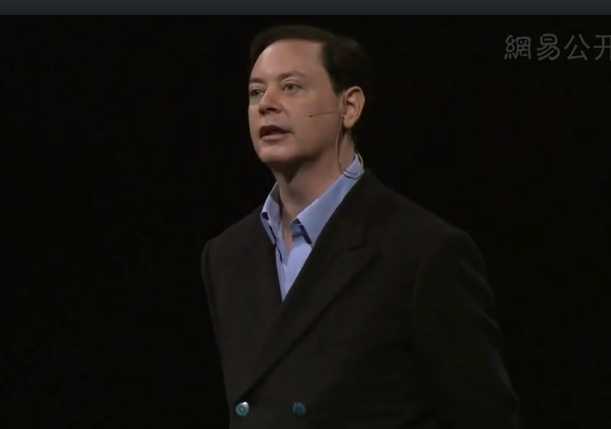"I felt a funeral in my brain, and mourners to and fro
“我的腦海中,進(jìn)行著一場葬禮,悼念者絡(luò)繹不絕
kept treading, treading till I felt that sense was breaking through.
不停的走著, 踩踏著,直到儀式的氛圍漸濃
And when they all were seated, a service, like a drum,
當(dāng)所有人入座,儀式開始,敲鼓的聲音
kept beating, beating, till I felt my mind was going numb.
沉重有力,敲打著, 敲打著,直到我的意識(shí)變得麻木
And then I heard them lift a box
我聽見他們抬起棺材
and creak across my soul with those same boots of lead again,
沉重的腳步,搖搖晃晃,我的靈魂吱呀作響
then space began to toll, as if the heavens were a bell and being were an ear,
四周喪鐘響起,就像一個(gè)鈴鐺
and I, and silence, some strange race wrecked, solitary, here.
安靜的我,如同異類,在此孤獨(dú),在此腐朽
Just then, a plank in reason broke,
失去依靠,理性開始崩塌
and I fell down and down and hit a world at every plunge, and finished knowing then."
我從高處墜落跌入一個(gè)又一個(gè)世界,終于看清。

We know depression through metaphors.
我們能夠在一些文學(xué)作品中看到抑郁的影子
Emily Dickinson was able to convey it in language, Goya in an image.
艾米莉·迪金森通過詩歌詮釋它,戈雅通過繪畫表達(dá)
Half the purpose of art is to describe such iconic states.
許多藝術(shù)作品產(chǎn)生的初衷就是為了表達(dá)這充滿象征意義的狀態(tài)
As for me, I had always thought myself tough,
就我自己來說,我一度認(rèn)為自己非常堅(jiān)強(qiáng)
one of the people who could survive if I'd been sent to a concentration camp.
認(rèn)為自己是那一類即使被送去集中營也可以存活下來的人
In 1991, I had a series of losses.
1991年,我經(jīng)歷了一連串的不幸
My mother died, a relationship I'd been in ended,
母親去世,愛情終結(jié)
I moved back to the United States from some years abroad,
我也在幾年的海外生活之后回到了美國
and I got through all of those experiences intact.
我在經(jīng)歷了這一切之后依舊安然無恙
But in 1994, three years later,
然而在1994年,也就是三年之后
I found myself losing interest in almost everything.
我突然發(fā)現(xiàn)自己對(duì)幾乎所有的事情都失去了興趣
I didn't want to do any of the things
甚至不愿意去做那些
I had previously wanted to do, and I didn't know why.
我曾經(jīng)很想去做的事情,我不知道這是為什么
The opposite of depression is not happiness, but vitality,
抑郁的反面并非快樂,而是活力
and it was vitality that seemed to seep away from me in that moment.
而正是這樣的活力似乎就在那段時(shí)間從我的身體中慢慢消失了
Everything there was to do seemed like too much work.
所有需要完成的事情都感覺那么麻煩
I would come home and I would see the red light flashing on my answering machine,
回到家的時(shí)候看著電話留言機(jī)上閃爍的紅燈
and instead of being thrilled to hear from my friends,
我不但不會(huì)因?yàn)槁牭脚笥褌兊穆曇舾械脚d奮
I would think, "What a lot of people that is to have to call back."
反而會(huì)想,怎么有這么多人等我回電話
Or I would decide I should have lunch,
有時(shí)該吃午飯了
and then I would think, but I'd have to get the food out and put it on a plate
我卻開始想,我還得把食物拿出來放到盤子里
and cut it up and chew it and swallow it, and it felt to me like the Stations of the Cross.
得切,得嚼,得咽,讓我感覺就像耶穌受難一樣
And one of the things that often gets lost in discussions of depression
人們?cè)谡務(wù)撘钟魰r(shí),時(shí)常忽略了一點(diǎn)
is that you know it's ridiculous.
那就是你知道這一切都很荒謬
You know it's ridiculous while you're experiencing it.
即使你正處在抑郁之中,你也知道這一切都很荒謬
You know that most people manage to listen to their messages and eat lunch
你知道多數(shù)人都可以讓自己去聽語音留言,去吃午餐
and organize themselves to take a shower and go out the front door
緊接著讓自己沖個(gè)澡,然后出門
and that it's not a big deal, and yet you are nonetheless in its grip
你知道這根本不是什么大不了的事情,然而你已經(jīng)被它掌控
and you are unable to figure out any way around it.
并且無法找到任何解決的方式
And so I began to feel myself doing less and thinking less and feeling less.
于是我開始感到自己事情做得越來越少,思考得越來越少,感知得越來越少
It was a kind of nullity.
就好像整個(gè)人已經(jīng)沒什么價(jià)值了
And then the anxiety set in.
緊接著焦慮就來了



